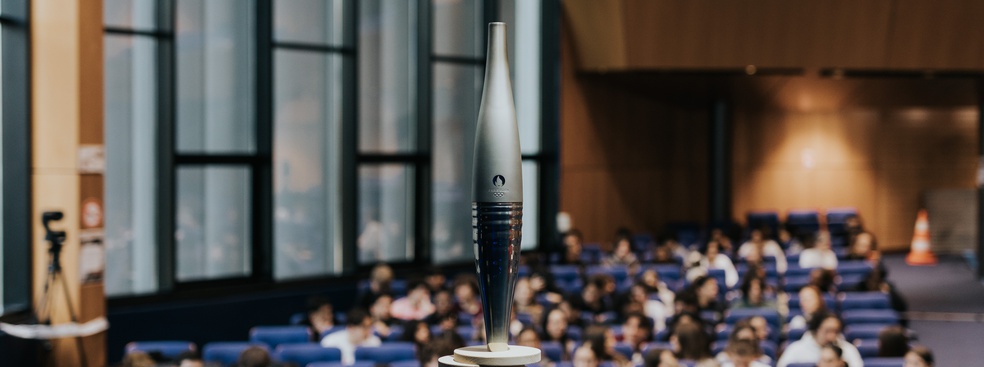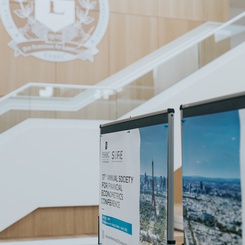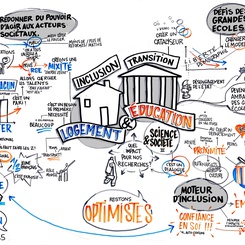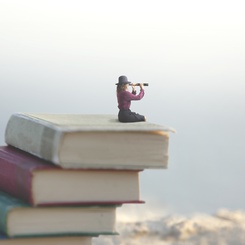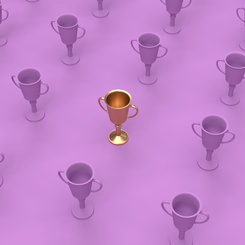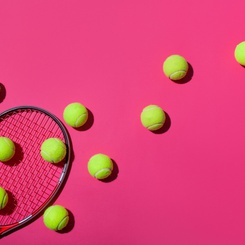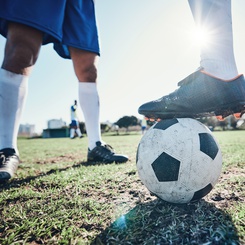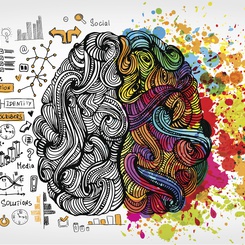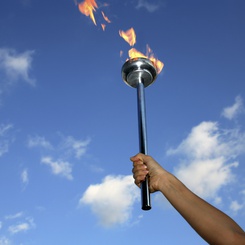On November 13th, 2025, the ESSEC Research Center and the Sports and Specific Talents Center hosted the 4th edition of ESSEC Science & Society on ESSEC’s Cergy campus, an annual conference dedicated to bridging the gap between academia and the greater public.
This year’s theme was “Sport and Well-Being for a Healthier Future”, gathering experts in the sports world and ESSEC faculty to share their expertise, experiences, and ideas. The conference featured keynote speeches and roundtable discussions and welcomed ESSEC professors, staff, students, and local high school students to campus to learn all about how sports can have a positive impact. Roméo Tédongap, ESSEC Dean of Faculty, kicked off the conference with a speech, thanking all speakers and guests for their participation.
.jpg)
Key takeaways from the conference include:
Amélie Oudéa-Castéra: The legacy of the Olympic and Paralympic Games - faster, higher, stronger
.jpg)
Amélie Oudéa-Castera, President of the French National Olympic and Sports Committee (CNOSF), Former Minister of Sports and the Olympic and Paralympic Games (2022-2024), gave the first keynote speech of the day. She spoke about the legacy of the Olympic and Paralympic Games and what comes next for the world of sport in France. For example, sport facilities built for Paris 2024, like the swimming pool in Seine Saint Denis, are now used by locals. She also emphasized the importance of keeping the momentum going when it comes to the value of physical activity: while a record 71% of French people report doing sport regularly, many French youth are not getting enough exercise. Ms. Oudéa-Castera underscored the important role that physical activity should have in our lives, and how the Paris 2024 Olympic and Paralympic Games served to propel the French sporting world forward.
Following the keynote, Amélie Oudéa-Castéra joined Clémence Delavoipière (Paralympic fencing athlete and ESSEC Bachelor HEPTA student), Romain Lachens (Director of Engagement, Paris 2024) and Benoît Taillardat (Sport dans la ville) for a round table on the impact of major sporting events on society. This round table, moderated by Thierry Lardinoit (ESSEC professor and Director of the Bachelor HEPTA), explored how the Games are about more than just sport - as Ms. Oudéa-Castéra noted, they are a part of French excellence and culture, just like Notre Dame, and France can be very proud of their legacy. Mr. Lachens explained that a big part of major sporting events is getting public buy-in, and this means getting communities involved and integrating sport into people’s everyday lives. Ms. Delavoipière shared her experience as an athlete, noting that Paralympic athletes do not always get as much visibility and that the Games boosted their presence as well as focusing on their athleticism, rather than the fact that they have a disability. Mr. Taillardat explained that sport can be a great equalizer - and that his charity aims to support young people in underprivileged communities by using sport to build bridges. Each participant shared their experience with sport, highlighting that sport can have an impact beyond the playing field.
Xavier Bigard: The importance of physical activity for everyone - regardless of their age
.jpg)
Xavier Bigard highlighted the risks associated with inactivity and sedentary behavior, notably as a major risk factor for chronic diseases. He pointed out that sedentary behavior has significant health impacts. This includes a decline in physical activity among children and adolescents, as well as increased absenteeism and healthcare costs among adults. He stressed that children and adolescents are particularly affected, with studies showing a decrease in their physical activity over the past decades. To combat these issues, Bigard recommended several strategies to increase physical activity. These include standing more often at work, using the stairs, active commuting, and organizing group physical activities. These measures are essential for reducing the risk of chronic diseases, improving overall health, and enhancing productivity in the workplace.
Round table #2: Workplace well-being and fighting sedentary behaviour at work
.jpg)
Dr. Lardinoit moderated a second round table, this one focused on workplace well-being and boosting physical activity at work. This round table featured Xavier Bigard, Camille Amar (CEO of Manita), Jean Philippe Gatien (Olympic medallist & Director of Sports for Paris 2024) and Fabien Gilot (Olympic medalist & Co-president of the Comité Sport du MEDEF). Xavier Bigard highlighted that physical activity must be a pillar of one’s life, and that parents need to instill this in their children - including in family-friendly ways like a nature walk. He also explained the benefits of physical activity, including for cognitive performance and academic success. Jean-Philippe Gatien shared his experience in organizing the Olympic Games, an intense environment. This intensity led him to question his work-life balance and ultimately leave his position to refocus, illustrating that leaving a project can sometimes be a form of success.
Fabien Gilot presented key figures from a study: 80% of employees and 82% of executives recognize the benefits of sports. The latter are even willing to invest in integrating sports practices within companies. However, challenges remain, such as how to reconcile sports with work time for employees, and how to measure its impact on productivity and well-being for managers.
Additionally, Camille Amar, founder of Manita (women's football), underscored the importance of adapting sports to all levels and ages. She reinforced the idea that sport is a lever for overall performance, both human and economic.
An afternoon of insights from ESSEC faculty
.jpg)
Vincenzo Vinzi, Dean and President of ESSEC Business School, took to the stage to kick off the second half of the conference. Over the course of the afternoon, ESSEC professors took to the stage to share their research and expertise on what we can learn from sports.
Anastasios Dosis, Associate Professor of Economics: All about the ESSEC Sports Chair
_(1).jpg)
Dr. Dosis, Co-Chair Holder of the ESSEC Sports Chair alongside Professor Marc Mazodier, explained how the Chair prepares future leaders in the sports business via a thorough understanding of sports and evolutions in the industry, such as e-sports and new funding models. As he explained, “The Chair aims to act as a think tank for sports management, foster a community, and produce high-quality research.” Around 30 students per year are selected for the Chair. This grants them hands-on experience and access to prestigious partners such as Allianz, Adidas, Fédération française de basketball, INSEP, and Paris Basketball.
Showcasing the value of the Chair, he also explained that there are many illustrious alumni - including Tony Estanguet (head of the organization committee for Paris 2024, speaker Amélie Oudéa-Castéra, and many more! ESSEC has a long, rich history of involvement in sports - including the Sports Chair, connecting students to the world of sports business.
Isabelle Solal, Assistant Professor of Management: What can studying sports teach us about work?
.jpg)
As a professor of management, Dr. Solal studies how people work. Sports and athletes can be a rich source of information, including how sports and physical health can impact performance at work. She also explained how we can expand our vision of athletes, and see them as the athlete as a worker. How so? Like any worker, they have certain job requirements, they work under pressure in a competitive environment, they evolve in a team environment. What’s the key difference? We have statistics and objective measures of performance available to us for athletes, which can teach us about who thrives at work, how to build our teams, and how to work well together.
On that note, Dr. Solal covered different research findings from sports. Notably, she discussed a study on how working together reduces bias, and how diverse teams perform better, based on a study of European football clubs. Why? Those immigrant athletes were trained differently and learned differently, which allows their teams to experiment (Glennon et al. 2025, Management Science).
To conclude, she covered three key takeaways: it’s not all about star power, it’s okay to go beyond your comfort zone, and teams work best when we reach out and include everyone.
Steven Seggie, Associate Professor of Management: The growing intersection of sport and geopolitics from Sochi to Qatar to Trump
.jpg)
Dr. Seggie discussed how sport is a form of soft power, which can manifest in different ways from sportswashing to sports diplomacy. Sport is also used as a geopolitical tool: taking the example of the Sochi Olympics, which showcased post-Soviet power and the “new Russia” - and were swiftly followed by the Russian invasion of Crimea, perhaps using sport as a prelude to aggression. This highlights Lesson #1: that soft power can mask (and eventually expose) hard power ambitions.
Another example he used was that of the World Cup in Qatar: the tiny nation is in a complex arena, and the World Cup brought mass tourism. This was Lesson #2: that soft power can be a tool for survival in a complicated region.
The third example is the case of Donald Trump and the 2026 World Cup. Granted long before Trump’s presidency, he is now weaponizing it against Democratic cities and threatening to move games, worrying sponsors. This bring us to Lesson #3: the Trump administration turned sport into a mirror of its internal divide, which diminishes its soft power aura.
Dr. Seggie concluded, “As global rivalry intensifies, mega sporting events will continue to serve as arenas of influence, pride and propaganda”.
Pierre Alquier, Professor of Information Systems, Data Analytics & Operations: Introduction to sports analytics
_(1).jpg)
Dr. Alquier explained how we now have a wealth of data available to us about athletes, from videos, official results, GPS tracking, betting and more - and new tools for data analysis, namely machine learning and AI. So what can we do with all this data and our sophisticated tools? He explained that we can use this information to analyze performance and strategy, identify weak points, improve and personalize training - and much more.
The field of sports analytics has come a long way - Dr. Alquier traced its origins to Charles Reep, a pioneer who analyzed football tactics by hand long before computers. As he notes, we now use data of spatial distribution and player movements for example to predict injuries. The challenge is defining what ‘similarity’ means in sports—how do we compare team positioning and performance across time and different contexts? Alquier’s work focuses on alternative methods for analyzing spatial data, which could offer a new tool for scouting talent and developing strategies.
Elisa Operti, Professor of Management: From locker room to scholarship to society - lessons that stick, and those that don’t
.jpg)
Dr. Operti studies social networks, especially networks with negative ties - like the Palio di Siena, the famous annual horse race in the Italian city. Her past work on the Palio di Siena has found that jockeys are less likely to move to rivals, to allies of rivals or rivals of allies. This helps reduce retribution both on and off the racetrack.
Her work explores rivalry and talent mobility - and how this applies to business and society contexts. Dr. Operti notes some key differences:
-
Sports data is typically composed of short-term tactical decisions in a very specific environment, but business strategy thinks more long-term.
-
Outliers lead to advances in sport, but chasing after outliers can be a dangerous business practice.
-
In sport, there can only be one winner, while business and societal ecosystems thrive on collaboration and competition.
-
Sports are often a masculine set up, emphasizing lessons from top performers (women tend to be “invisible” in sport, as less money means they get less attention and therefore less research).
This means that while we can still use findings from sport, it just means that it’s important to keep the context in mind and that it is not always 100% generalizable. Further, business, sport and society alike all need to address equity and diversity challenges. Sports can have a positive societal impact, and can promote a positive body relationship and convince more women to stay in sports.
In summary, Dr. Operti said, “Let’s make sports work for us! Sports have a lot of potential - great data, as shown by Pierre, and learning from sports is about selective deployment in research and pedagogy so that we can make society a better place in the long run.”
Wrapping up
_(1).jpg)
To cap off the day, Ha Hoang, Associate Dean of Research at ESSEC, thanked all in attendance for their participation, with a special thanks to the organizing committee and to Gilbert Azoulay, Director of News Tank Education, for acting as master of ceremony. As she noted, “Thank you to the ESSEC Research Centre and the Sports & Specific Talents Centre for organizing this conference, and for highlighting the value that sports can bring to our lives - whether we’re a top athlete, an office worker, or a student! See you next fall for the 5th edition of the ESSEC Science & Society Conference, and stay tuned for the reveal of next year’s theme”.
_(1).jpg)
The ESSEC Research Center team
.jpg)
The Sports & Specific Talents Center team
Partners
![]()
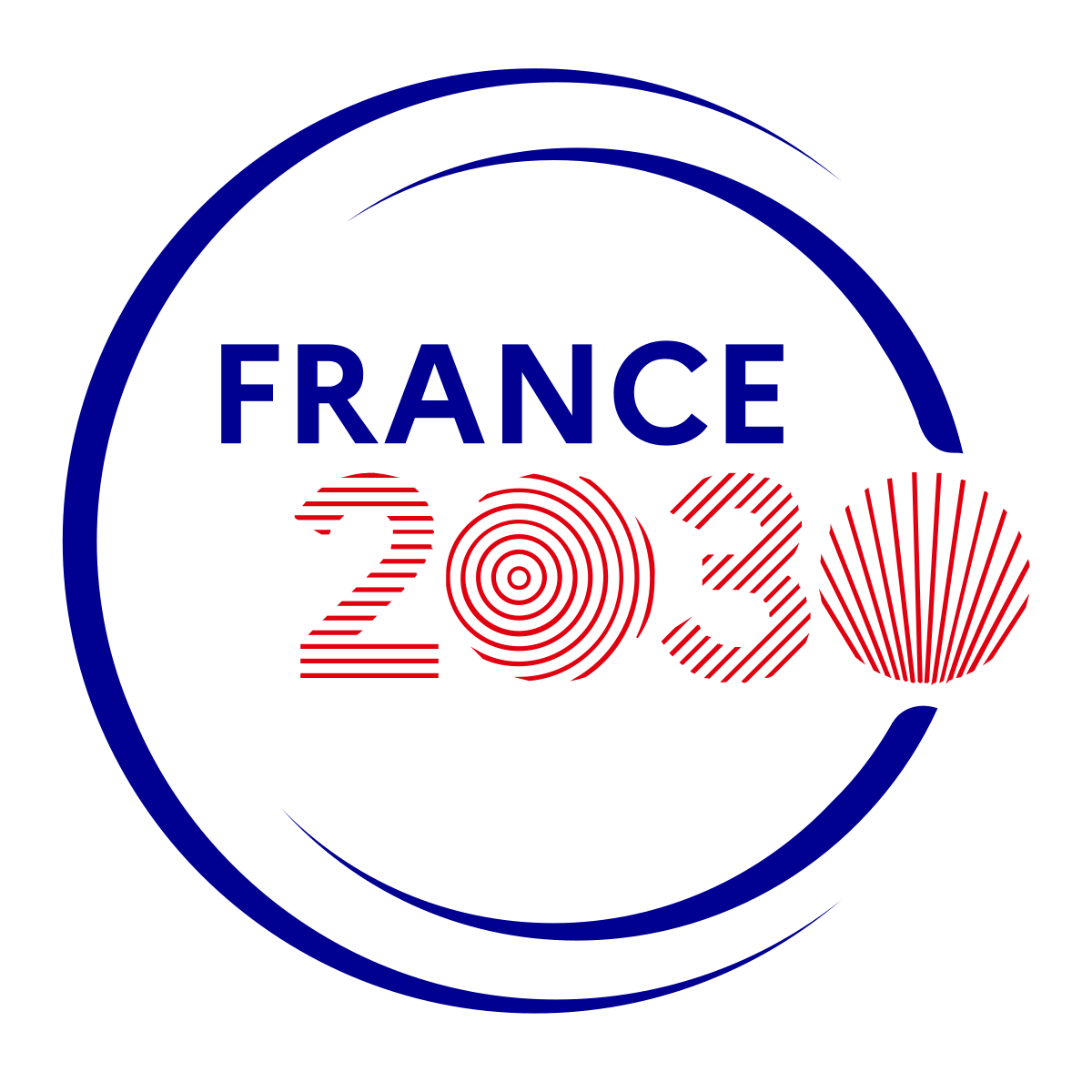
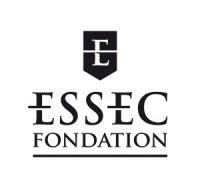
![]()
This event received funding from the CY Initiative of Excellence (subvention « Investissement d’Avenir » ANR-16-IDEX-0008). This project received funding from France 2030.
